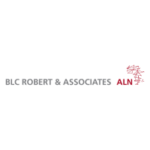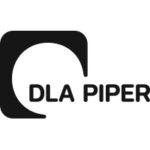-
What are the national authorities for banking regulation, supervision and resolution in your jurisdiction?
In Switzerland, the primary regulator for supervising the financial market and its participants as well as certain products is the Swiss Financial Market Supervisory Authority FINMA (FINMA). FINMA also acts as rule maker with respect to technical implementing provisions where federal acts or their implementing ordinances delegate such power to FINMA, and acts as resolution authority in restructuring or liquidation proceedings of Swiss banks, securities firms, fund management companies and central mortgage bond institutions. The Swiss National Bank (SNB) is entrusted with the task to ensure the stability of the Swiss financial market – including the task commonly referred to as the macro-prudential supervision. Independent asset managers and trustees are subject to supervision by specific Supervisory Organizations (SOs), which in turn are authorized and supervised by FINMA.
-
Which type of activities trigger the requirement of a banking licence?
As a general rule, no one is allowed to accept deposits from the public on a professional basis, or recommend himself for doing so, without a prior banking license from FINMA. The same is true for accepting of crypto-based assets held in collective custody (see Question 6 for more details) on a commercial basis, or publicly recommending oneself for this purpose, and investing or paying interest on these assets. Unauthorised acceptance of deposits or crypto assets held in collective custody, advertising such services, other use of the terms bank, banker or savings by non-banks are subject to criminal punishment.
-
Does your regulatory regime know different licenses for different banking services?
Switzerland recognises the concept of universal banks, where banks can perform different types of activities, for example asset management, lending, investment banking, deposit taking, etc. Certain activities not related to the banking business may be permissible, but require an express power in the bank’s articles of associations, which need to be approved by FINMA. Moreover, the bank’s business will have to be specified in its business rules. Any substantial change of the bank’s business or business purpose, or the start of new businesses, require the submission of a so-called notification to, and a prior approval from, FINMA. That said, with a view to ease regulatory burdens for small banks, FINMA has enacted a so-called “small banks regime” with effect of 1 January 2000. The small banks regime seeks to increase efficiency in regulation and supervision for small, particularly liquid and well capitalized institutions. The goal is to reduce the regulatory burden on such institutions without jeopardizing their stability and safety. Banks wishing to participate in the small banks regime must therefore be extremely well capitalized and enjoy high liquidity. In return, they are to benefit from a significantly less complex regulatory regime under the Capital Adequacy Ordinance that allows them, for example, to forego the calculation of risk-weighted assets.
-
Does a banking license automatically permit certain other activities, e.g., broker dealer activities, payment services, issuance of e-money?
Yes. Since 1 January 2020, Swiss law (specifically the Financial Institutions Act) knows a regulatory cascade based on which certain licenses automatically cover other activities. For example, a banking license automatically permits other licensed activities, such as to operate as a securities firm, a manager of collective assets, a portfolio manager or as a trustee. Switzerland does currently not have a comprehensive regulation of payments services and issuance of e-money.
-
Is there a “sandbox” or “license light” for specific activities?
With effect as of 1 August 2017 and 1 January 2019, respectively, Switzerland introduced a sandbox exemption as well as a license light.
The sandbox exemption applies to businesses that accept client deposits from more than 20 persons, or publicly state that they do so, provided that (i) the aggregate amount of client deposits or crypto assets held in collective custody is less than CHF 1 million, (ii) no interest is paid on the client deposits or crypto assets, (iii) the client deposits are not invested, and (iv) the depositing clients are informed in text form that the company accepting the deposits is not supervised by FINMA and the deposits are not covered by the Swiss depositor protection regime.
In order to allow innovation in the financial sector, since 1 January 2019, entities mainly active in the financial sector that only accept deposits or crypto assets held in collective custody in the aggregate amount of up to CHF 100 million, or publicly state that they do so, and neither pay interests on such deposits/crypto assets nor invest them are regulated in a specific way. To them, the Swiss Banking Act only applies by analogy and they only have to meet certain requirements, e.g., as to their organization, risk management, compliance, financial means, etc. Such entities also have to inform their clients in text form (not to be included in the general terms and conditions) about the risks associated with their business model, services and utilized technologies as well as about the fact that the deposits are not covered by the Swiss depositor protection regime.
-
Are there specific restrictions with respect to the issuance or custody of crypto currencies, such as a regulatory or voluntary moratorium?
There are no specific rules in place with respect to the issuance or custody of crypto currencies. For such activities, a case-by-case analysis is necessary in order to determine whether the general prospectus, banking (deposit taking), financial infrastructure, anti-money-laundering, financial services, or other rules and regulations apply.
There is no regulatory moratorium with respect to crypto assets in place, either. To the contrary, Switzerland is very crypto friendly, and the legislator and regulators try to be ahead of the curve in addressing the challenges and questions the new blockchain technology brings with it. A new Distributed Ledger Technology (DLT) legislation aiming to further increase legal certainty for the custody of crypto assets and the tokenization of financial instruments in Switzerland (DLT Act) entered into effect in August 2021. Notwithstanding this, certain Swiss banks in part still maintain a self-imposed crypto restriction/moratorium. That said, a number of banks have recently increased their offering in the field of digital assets (including custody of native token such as cryptocurrencies but also tokenization of “traditional” assets such as shares).
-
Do crypto assets qualify as deposits and, if so, are they covered by deposit insurance and/or segregation of funds?
Certain crypto-based assets (kryptobasierten Vermögenswerte) do qualify as deposits and/or as custody assets subject to segregation. This, in part, depends on their qualification as a payment token but also on the way they are stored. Specifically, crypto-based assets held in collective custody that actually or according to the intention of the organizer or issuer serve to a significant extent as a means of payment for the acquisition of goods or services or the transfer of money or value qualify as deposits. Such crypto-based assets are subject to segregation in the case of bankruptcy of the bank if the bank has undertaken to keep them available for the custody account client at all times and they are either individually allocated to the custody account client or are allocated to a community and it is evident which share of the community assets is attributable to the specific custody account client. Such crypto-based assets do not include assets which are held (a) as non-interest-bearing credit balances in customer accounts solely for the purpose of settling customer transactions either (i) by precious metal dealers, asset managers or similar companies, provided settlement takes place within 60 days, or (ii) by investment firms or by DLT trading systems, (b) from domestic and foreign banks or other government-supervised entities, or (c) from institutional investors with a professional treasury.
The DLT Act also created a legal basis for the safekeeping of crypto-based assets which protects clients in the event of the custodian’s insolvency. Due to the increasing importance of staking services, FINMA had to answer an increasing number of questions regarding the application of these custody provisions to staking services. Depending on the constellation of the staking service, it is possible that the requirements of the DLT Act may not be met and the assets may not enjoy insolvency protection in the event of the insolvency of the custodian. FINMA in December 2023 issued a supervisory communication to provide information on the classification of staking services for clients under financial market law and the associated licensing requirements.
For crypto-based assets held by the bank as custody assets for custody clients, FINMA may set a maximum amount on a case-by-case basis if this appears to be advisable due to the risks associated with the transaction. In particular, FINMA shall take into account the function of the crypto-based assets, their underlying technologies and risk-mitigating factors.
-
If crypto assets are held by the licensed entity, what are the related capital requirements (risk weights, etc.)?
Until today, FINMA has not published generally applicable standards on the treatment of crypto assets for purposes of capital requirements. According to the currently prevailing practice, crypto assets are attributed a risk weighting of 800%. This 800% requirement is deemed to serve as a general risk weight indicator that covers both credit and market risks and applies to any type of crypto assets. Therefore, a bank must add 800% of the crypto assets it holds to its risk-weighted assets, irrespective of (i) whether the assets are held in the bank’s trading or banking book and (ii) their individual characteristics and risk profile.
In addition to the 800% risk weighting requirement for crypto assets, FINMA’s practice is reported to include a requirement for banks to notify FINMA if the amount of crypto assets held on their trading book exceeds 4% of their total capital. Also, since 1 August 2021, the Swiss Banking Act enables FINMA to impose on an individual bank a specific maximum amount for crypto-based assets held in custody for clients.
On 16 December 2022, the Basel Committee on Banking Supervision (BCBS) published its final report on the prudential treatment of banks’ exposure to crypto assets (the BCBS Report). The BCBS Report is the result of two consultation rounds initiated by the BCBS in June 2021 and June 2022, respectively, and introduces international standards for the treatment of crypto assets under the capital requirements set out under the Basel Framework (the BCBS Standard). The BCBS Standard will in a next step be incorporated into the consolidated Basel Framework. According to the BCBS Report, the BCBS Standard should be implemented into national law by 1 January 2025. The national legislators and regulators will therefore need to assess if and how they incorporate the BCBS Standard into their existing regulatory capital framework. In Switzerland, it is generally expected that FINMA will review its current practice in light of the BCBS Report. However, it remains to be seen whether the Swiss legislator will follow the requirements set forth by the BCBS Standard in their entirety or will apply a separate Swiss approach that deviates in certain respects from these requirements.
-
What is the general application process for bank licenses and what is the average timing?
In order to obtain a banking license from FINMA, one must submit a written application in an official language of Switzerland (German, Italian or French), together with several exhibits supporting the statements made therein (which may also be in English), that shows that all requirements relevant under prudential supervision are met and are appropriate for the bank’s intended business.
The application procedure will in most cases be prepared and conducted by the legal advisor in close co-operation with the (future) legal owner / shareholder of the bank. The bank’s special licensing auditor plays an important role in the application procedure since the license will not be issued by FINMA until FINMA has received an audit report confirming compliance of the constituting documents and the bank’s organisation with all relevant regulatory requirements.
The duration of the licensing process depends on the complexity and completeness of the application. According to FINMA, the average duration of the proceeding (not including the preparation therefor) is six months.
-
Is mere cross-border activity permissible? If yes, what are the requirements?
For banks, mere cross-border activities from abroad into Switzerland are not subject to FINMA supervision and licensing as of yet. Specific rules may, however, apply to protect Swiss consumer clients independently of FINMA supervision or licensing requirements. For example, certain lending activities on a professional basis to Swiss consumers could trigger licensing requirements under the rules of the Consumer Credit Act. Also, in case of mortgage loans, restrictions on foreign ownership of Swiss real estate may apply. Additionally, the new Financial Services Act, in effect since 1 January 2020, introduced a register of advisers providing cross-border financial services, i.e., the following activities carried out for clients: 1. acquisition or disposal of financial instruments, 2. receipt and transmission of orders in relation to financial instruments, 3. administration of financial instruments (portfolio management), 4. provision of personal recommendations on transactions with financial instruments (investment advice), and 5. granting of loans to finance transactions with financial instruments.
-
What legal entities can operate as banks? What legal forms are generally used to operate as banks?
A bank may primarily be established in the form of a corporation (Aktiengesellschaft), but may also be a cooperative (Genossenschaft, with certain special requirements), a sole proprietorship (Einzelfirma, for private bankers), a general partnership (Kollektivgesellschaft), or a partnership limited by shares (Kommanditaktiengesellschaft). Cantonal banks may take the form of an establishment (Anstalt) or a corporation (Aktiengesellschaft) on the basis of Cantonal law.
-
What are the organizational requirements for banks, including with respect to corporate governance?
The Banking Act, Banking Ordinance and FINMA Circulars require a certain governance structure. For example, the members of a bank’s governing body for its guidance, supervision and control (e.g., the board of directors) are not allowed to be members of the bank’s management and must meet fit and proper requirements, at least 1/3 of the board must meet certain criteria of independence, and banks generally must have an audit committee on the board level, as well as an independent risk control function, compliance function and an internal audit. The bank’s risk management needs to be carried out on the appropriate organisational level, using adequate methods, and must reflect the particularities of the specific bank.
-
Do any restrictions on remuneration policies apply?
Swiss regulatory compensation rules are contained in a FINMA Circular 2010/1 “Minimum standards for remuneration schemes of financial institutions” (Compensation Circular). The scope of the Compensation Circular generally applies to the remuneration of all persons (institution-wide) who are employed by firms that are subject to Swiss financial market supervision (each a Relevant Firm) or by an affiliate of such Relevant Firm and who are remunerated for work performed in respect of the Relevant Firm, including persons entrusted with the executive management (Senior Management (Geschäftsleitung)) and persons responsible for the overall direction, oversight and control (Board of Directors).
The Compensation Circular is mandatory for Relevant Firms that are required to maintain minimum equity capital of CHF 10 billion (stand-alone or consolidated). Where this threshold is not met, adherence to the Compensation Circular merely is recommended as best practice guidelines. The Compensation Circular must be adhered to (or be considered as best practice, as the case may be) by the Relevant Firms’ domestic and foreign subsidiaries and branches which are mandatorily included in consolidation.
-
Has your jurisdiction implemented the Basel III framework with respect to regulatory capital? Are there any major deviations, e.g., with respect to certain categories of banks?
Switzerland implemented the Basel III capital framework with effect as of 1 January 2013.
Building up on these rules, special requirements apply for systemically important banks (SIBs), subject to certain phase-in provisions. SIBs must hold sufficient capital that absorbs current operating losses to ensure continuity of service (going concern requirement). The going concern requirement fully applicable since 2020 consists of:
- a minimum requirement of 8% of RWA and 3% of leverage exposure, and
- a buffer of (i) 4.86% of RWA and 1.5% of the leverage exposure, leading to a so-called base requirement of 12.86% of RWA and 4.5% of leverage exposure, and (ii) an additional buffer surcharge, which reflects the systemic importance.
In general, this requirement for systemically important banks must be met by CET1 capital, with up to 3.5% of RWA and 1.5% of the leverage exposure of the minimum requirement and up to 0.8% of RWA in the buffer permissible to be held in additional tier 1 capital instruments that would be converted into common equity or written down if the CET1 ratio falls below 7%. The gone concern requirement does not include any countercyclical buffers, which have to be held on top.
For systemically important banks operating internationally (G-SIBs), such as Credit Suisse or UBS, additional requirements for loss-absorbing capacity apply. In addition to the above-mentioned going concern requirement, they must issue sufficient qualifying debt instruments to allow for restructuring without recourse to public resources (gone concern requirement, see below at Question 26.). Similar rules apply to domestically systemically important banks (D-SIBs), with certain quantitative alleviations and qualitative specialities (mainly driven by the legal nature of some of the existing D-SIBs).
Furthermore, Swiss capital requirements provide for a supplemental counter-cyclical buffer of up to 2.5% of a bank’s risk-weighted assets. Since 30 June 2014, the counter-cyclical buffer is set at 2% of a bank’s risk-weighted assets pertaining to mortgage bonds that finance residential property in Switzerland. Effective July 1, 2016, Switzerland introduced the option of an extended countercyclical buffer, which is based on the BIS countercyclical buffer that could require banks to hold up to 2.5% of RWA in the form of CET1 capital.
-
Are there any requirements with respect to the leverage ratio?
In order to implement the BCBS’s final leverage ratio requirement, the Swiss regulations require a leverage ratio of 3% for all banks.
See above at Question 13. and 14. for the existing leverage ratio requirements for systemically important banks and Swiss G-SIBs or D-SIBs.
-
What liquidity requirements apply? Has your jurisdiction implemented the Basel III liquidity requirements, including regarding LCR and NSFR?
The Liquidity Ordinance reflects the final Basel III rules, in particular also on the LCR. Under the Liquidity Ordinance, Swiss banks, including SIBs, are subject to a minimum LCR requirement of 100%.
FINMA further requires Swiss banks to report the NSFR to FINMA on a monthly basis. The reporting instructions are generally aligned with the final BCBS NSFR requirements. Following an observation period that began in 2012, the associated ordinance amendments to implement the NSFR entered into force in July 2021. For individual institutions belonging to a financial group, FINMA may permit that the NSFR requirements are met on an aggregated basis across multiple individual institutions domiciled in Switzerland or excess funding of an individual institution domiciled in Switzerland is credited to another individual institution domiciled in Switzerland. However, the individual institutions that are domiciled in Switzerland must independently have an NSFR of at least 0.8 (normally 1 would be required). Individual institutions with significant domestic systemically important functions must in any case also independently meet the NSFR.
Additionally, in order to facilitate the smooth functioning of the money market, Swiss banks are required to keep minimum reserves consisting of Swiss Franc denominated coins, banknotes and sight deposit accounts which the banks hold with the SNB in an amount of 2.5% of the average of such bank’s short-term Swiss Franc denominated liabilities at the end of the three months preceding the reporting period.
-
Which different sources of funding exist in your jurisdiction for banks from the national bank or central bank?
Where the initiative comes from the relevant counterparty of the SNB (there are other monetary policy instruments where the SNB takes the initiative), Swiss law and the regulations of the SNB currently distinguish between standing facilities, repo transactions, extraordinary liquidity assistance (emergency liquidity assistance and the public liquidity backstop.
Standing facilities include the liquidity-shortage financing facility, the intraday facility and the SNB COVID-19 refinancing facility (CRF). For these facilities, the SNB sets the conditions under which counterparties can obtain liquidity. The liquidity-shortage financing facility serves to bridge unexpected liquidity shortages. The intraday facility eases interbank payment transactions in the Swiss Interbank Clearing (SIC) payment system and foreign exchange transactions in the multilateral foreign exchange settlement system (Continuous Linked Settlement). The CRF, introduced by the SNB in March 2020, was aimed at supporting the supply of credit to the economy, thereby cushioning the economic impact of the coronavirus pandemic.
In the case of liquidity-providing repo transactions, the SNB purchases eligible securities from a bank (or other financial institution admitted to the repo market) and credits the corresponding sum in Swiss francs to the counterparty’s sight deposit account with the SNB, an it is agreed that the SNB will sell securities of the same type and quantity back to the bank at a later date.
As lender of last resort, the SNB can provide emergency liquidity assistance (ELA) to individual banks if they are no longer able to refinance themselves via the market. To be eligible, the banks concerned must be important for the stability of the financial system, solvent, and able to post sufficient collateral to cover the liquidity assistance provided. Eligible collateral primarily includes mortgage claims on Swiss real estate that are collateralized by paperless mortgage certificate, which are administered in trust by SIX SIS Ltd.
In March 2022, in the interest of providing liquidity to systemically important banks should a crisis arise, the Federal Council announced its intention to introduce a public liquidity backstop (PLB). The SNB would thus provide a systemically important bank with additional liquidity assistance in the form of a state-guaranteed loan in the event of a crisis. Based on an emergency ordinance by the Federal Council, the PLB was activated in March 2023 in connection with the crisis of Credit Suisse. In May of the same year, the Federal Council continued its work on anchoring the PLB in the Banking Act. The Swiss Parliament will now continue its work to generally anchor the PLB in Swiss law as a liquidity tool.
-
Do banks have to publish their financial statements? Is there interim reporting and, if so, in which intervals?
Yes, banks have to publish an annual report and an interim report (at least half-yearly) and also make these available to FINMA (in addition to applicable listing requirements, if any).
-
Does consolidated supervision of a bank exist in your jurisdiction? If so, what are the consequences?
FINMA may subject a financial group or financial conglomerate to its group or conglomerate supervision.
Under Swiss standards of consolidated supervision, it is required that the financial group is adequately organised; has an adequate internal control system; adequately records, mitigates and monitors risks in connection with its business activities; is managed by persons who can guarantee proper business conduct; complies with the duty of segregation of duties between management and the governing body for the guidance, supervision and control; adheres to the capital adequacy and risk diversification regulations; has adequate liquidity; correctly applies the accounting regulations on financial statement accounting; and has a recognised, independent and competent auditor.
-
What reporting and/or approval requirements apply to the acquisition of shareholdings in, or control of, banks?
Natural persons or legal entities that directly or indirectly participate in a Swiss bank with at least 10% of the bank’s capital or voting rights (a Qualified Participation) or otherwise may influence the bank in a significant manner (Controlling Influence) are subject to prior notification requirements and a related proper business conduct review. Although the Banking Act calls the above notice requirements a notification duty, it is a de facto approval requirement. Further notification duties exist whenever participation is increased or decreased so that it reaches, exceeds or falls below the thresholds of 20%, 33% or 50% of the bank’s capital or voting rights. In addition, a bank itself also must notify FINMA where it has knowledge that any person is a qualified participant or reaches, falls below or exceeds the thresholds of 10%, 20%, 33% or 50% of the capital or voting rights or otherwise exercises a controlling influence on the bank.
-
Does your regulatory regime impose conditions for eligible owners of banks (e.g., with respect to major participations)?
In addition to the members of the board of directors, the executive body, and any other persons who – due to their responsibilities within the bank – could jeopardise the bank’s continued existence and proper business, the holders of Qualified Participations (see Question 18.) or persons exercising a Controlling Influence (see Question 18.) are subject to the fit and proper requirements in FINMA’s practice.
The fit and proper requirement covers matters of professional qualifications (e.g., required for the proper management of a supervised entity) and personal reputation. The principal criterion used in assessing a person’s suitability is their professional track record.
-
Are there specific restrictions on foreign shareholdings in banks?
A special additional licensing requirement exists if a bank is under a controlling foreign influence. In these cases, certain additional requirements have to be met. A controlling foreign influence is given whenever foreigners with a Qualified Participation (see Question 18.) directly or indirectly hold more than 50% of the voting rights in the bank or a significant influence on the bank is exercised in another manner. In addition, if the bank is part of a financial services group or a group being also engaged in the banking business, appropriate consolidated supervision by a recognised foreign supervisor must exist and be evidenced.
A subsequent additional license must be obtained from FINMA if a Swiss-controlled bank becomes foreign-controlled after its establishment or if a foreign-controlled bank experiences a change of its foreign controlling person(s) at a later point in time.
-
Is there a special regime for domestic and/or globally systemically important banks?
Yes, Swiss systemically important banks must meet special capital requirements (quantity and quality, see above at Question 13.), liquidity requirements (see above at Question 15.), risk diversification requirements (measured against their CET1 rather than their total capital) as well as emergency planning requirements. G-SIBs and D-SIBs also have to comply with a gone concern requirement (see at Question 26.).
-
What are the sanctions the regulator(s) can order in the case of a violation of banking regulations?
FINMA has a broad range of supervisory instruments available to perform its tasks. It has relatively wide discretion with respect to which measures it decides to take, as long as the measures are suitable, required and proportionate. These instruments include: measures to restore compliance with the Financial Market Acts; declaratory rulings stating that a legal requirement had been breached; prohibition from acting in a management capacity at any firm subject to its supervision for a period of up to five years; confiscation of profits; appointment of an independent investigating or audit agent; revocation of the license/recognition/registration; or suspension of voting rights.
Moreover, the violation of Financial Markets Acts can lead to severe punishment, including imprisonment (e.g., unlicensed deposit taking or insider trading) or substantial fines (e.g., the violation of disclosure duties with respect to listed companies). The authority responsible for prosecution and judgement of violations of any criminal provisions of FINMASA or the Financial Market Acts is the Federal Department of Finance’s Criminal Division. Where proceedings before the courts are requested or if the Federal Department of Finance is of the view that the requirements for imprisonment or a custodial measure are met, the offence is subject to federal jurisdiction. In such a case, the Federal Department of Finance shall refer the files (which is deemed to be the bringing of changes) to the Office of the Attorney General of Switzerland for proceedings before the Federal Criminal Court.
-
What is the resolution regime for banks?
Swiss banks are subject to a special resolution regime regulated in the Banking Act and BIO-FINMA.
Before FINMA may initiate resolution proceedings (restructuring or liquidation) with respect to a bank, one of the following prerequisites must be met: (i) there is justified concern that the bank is over-indebted, i.e., the bank is not yet insolvent, but insolvency can reasonably be expected to occur imminently and the bank no longer is or likely no longer will be in a position to avoid insolvency by its own efforts in a sustainable way; (ii) the bank has serious liquidity problems; or (iii) the bank fails to fulfil the applicable capital adequacy requirements after expiry of a deadline set by FINMA. If the requirements are met, FINMA may also order protective measures.
FINMA may only initiate restructuring proceedings rather than liquidation proceedings if (i) restructuring proceedings are likely to result in the recovery of the relevant bank, or the continued provision of certain banking services by the relevant bank or another entity, and (ii) the creditors of the relevant bank are likely to fare not worse in restructuring proceedings than in a hypothetical liquidation proceedings. In restructuring proceedings, FINMA has a variety of tools, including bail-in and the transfer of assets, to try to successfully restructure the bank.
-
How are client’s assets and cash deposits protected?
Depositor protection in Switzerland is based on a three-tiered system:
- As a first step, privileged deposits (up to CHF 100,000 per customer) are immediately (within 7 working days after FINMA’s opening of the bankruptcy or relevant protective measure) paid out from the liquid assets of the failed bank.
- If the institution’s liquidity does not suffice to cover all the privileged bank deposits as per step one above, the system-wide self-regulatory depositor protection scheme is used as a second measure to protect privileged deposits, provided that such privileged deposits are booked in Switzerland. “esisuisse”, the organization responsible for depositor protection in Switzerland, has seen changes in its funding mechanism. These adjustments ensure that esisuisse has sufficient resources to fulfil its mandate effectively, especially in scenarios requiring significant payouts.
- And as a third measure to protect deposits, privileged deposits are treated preferentially, i.e., in the event of bankruptcy, these deposits are treated as second creditor class claims and will thus be satisfied after certain claims in the first class (e.g., claims of employees) but before general creditors in the third class. Claims with respect to deposits exceeding the privileged amount are ranked in the third class of creditors and participate pro rata in the proceeds of realisation of the bank`s assets to any other unprivileged creditors.
Unlike cash deposits in bank accounts, assets in custody accounts such as shares, bonds, units in collective investment schemes and other securities are client property and, in the event of bankruptcy, all such assets are immediately separated from the bank`s assets and then released to clients owning such assets or to a custodian designated by them.
-
Does your jurisdiction know a bail-in tool in bank resolution and which liabilities are covered? Does it apply in situations of a mere liquidity crisis (breach of LCR etc.)?
In restructuring proceedings with respect to Swiss banks, a restructuring plan may provide for a broad range of restructuring measures, depending on the concrete circumstances of the case at hand and subject to the principle of proportionality. FINMA has broad discretion to take decisive action, including, among other things, converting the bank’s debt into equity (a debt-to-equity swap); and/or partially or fully writing-off (certain of) the bank’s obligations (a haircut). A debt-to-equity swap and a haircut are generally referred to as a bail-in and are FINMA’s preferred restructuring measure for systemically relevant banks.
As a general rule, all debt capital may be converted into equity capital. The following are excluded:
- privileged claims (including privileged deposits, see above at Question 24.) to the extent that they are classed as preferential;
- secured claims to the extent that they are secured;
- offsettable claims to the extent that they are offsettable; and
- claims arising from liabilities that the resolution entity was permitted to incur during the period of certain protective measures (restriction of the business activities; prohibition from making disbursements, accepting payments or effecting transactions; closure of the bank; ordering of a deferment and postponement of maturity, except for collateralized claims of mortgage bond clearinghouses (Pfandbriefzentralen)) or during a restructuring proceeding with the approval of FINMA or an investigative or restructuring officer appointed by FINMA.
Bail-in is a tool that serves to recapitalize the balance sheet of a resolution entity (and in a single-point-of-entry resolution, the whole group) – it does not have a positive effect on liquidity, at least not in the short or mid term. As such, it is a measure only justified and constitutional if the crisis leading to a restructuring is driven by losses that lead to an over-indebtedness (including by extraordinary outflows leading to non-viability) or breach of regulatory capital requirements after the lapse of a deadline to restore such capitalization, not in a “normal” liquidity crisis.
-
Is there a requirement for banks to hold gone concern capital (“TLAC”)? Does the regime differentiate between different types of banks?
Systemically important banks must issue sufficient qualifying debt instruments to fund restructuring without recourse to public resources (gone concern requirement). Going concern capital (see above at Question 13.) and gone concern capital together form the total loss-absorbing capacity (TLAC). The Swiss going concern and gone concern requirements for systemically important banks operating internationally (G-SIBS) are generally aligned with the FSB’s total loss-absorbing capacity standard.
The gone concern requirement of a G-SIB is equal to its total going concern requirement (see above at Question 13.); D-SIBs are subject to a gone concern requirement of 40 percent of their going concern requirement, subject to a phase-in until 2025. The gone concern requirement should primarily be fulfilled with bail-in debt instruments that are designed to absorb losses after the write-down or conversion into equity of regulatory capital of a G-SIB or D-SIB in a restructuring scenario, but before the write-down or conversion into equity of other senior obligations of the G-SIB or D-SIB, respectively. Bail-in debt instruments do not feature capital triggers that may lead to a write-down and/or a conversion into equity outside of restructuring, but only begin to bear losses once the G-SIB or D-SIB is formally in restructuring proceedings and FINMA orders capital measures (i.e., a write-down and/or a conversion into equity) in the restructuring plan. According to the Capital Adequacy Ordinance, bail-in debt instruments must fulfil certain criteria in order to qualify under the gone concern requirement, including FINMA approval. Specific types of D-SIBs subject to a state guarantee or similar mechanism may also meet half or all, depending on whether certain criteria are met, of their gone concern requirement by way of the state guarantee or similar mechanism.
For systemically relevant Cantonal banks, the gone concern requirement can be met by specific bail-in instruments that meet the normal requirements for gone concern instruments but may be written-off prior to the wipe-out of the equity if these instruments provide for an adequate compensation of the holders of such bail-in bonds. Before issuing such gone concern debt instruments, the relevant Cantonal bank must submit to FINMA for approval the terms and conditions of the instrument and a restructuring concept drawn up in conjunction with the Canton.
-
Is there a special liability or responsibility regime for managers of a bank (e.g. a "senior managers regime")?
Currently, there is no such special regime for managers of a bank. Notwithstanding this, all members of the executive board and of the board of directors have to meet the fit-and-proper requirement of FINMA. If this requirement is no longer met, FINMA may order the removal of the relevant individual from the executive board or board of directors, as applicable. Furthermore, all employees of a Swiss bank may be banned from acting in a management capacity of a supervised entity if FINMA detects a serious violation of supervisory provisions. Such a prohibition from practising a profession may be imposed for a period of up to five years. In the aftermath of the Credit Suisse crisis, the Federal Council proposed the introduction of a senior managers regime into Swiss law, with implementation anticipated in the coming years in some form or fashion.
-
In your view, what are the recent trends in bank regulation in your jurisdiction?
We currently see three trends in Swiss bank regulation:
- The further (de)regulation in the area of FinTech to allow innovation, disintermediation, and technological developments;
- digitalization, e.g. the provision of banking services via platforms or apps or decentralized finance protocols, or the clearing and settlement on the blockchain; and
- changes in the Swiss banking market as a consequence of the merger by absorption of Credit Suisse by UBS as a result of the events in March 2023.
Furthermore, legislative and other changes addressing several topics regarding financial infrastructures and the DLT / Blockchain area (including tokenization of shares and other financial instruments, trading and/or listing platforms for crypto assets or tokenized securities) as well as the use of generative artificial intelligence may further increase digitalization.
-
What do you believe to be the biggest threat to the success of the financial sector in your jurisdiction?
Continuing trends of nationalisation may continue to limit or impact Swiss bank’s access to other markets. Defragmented regulation also resulting from such nationalisation – including in the implementation of international frameworks – may further increase the costs of doing business and may continue to drive some players out of the market. Additionally, a legislative „overreaction“ to the Credit Suisse crisis by implementing wrong legislative measures, too strict capital requirements, and/or too strict liquidity requirements may negatively influence the business activities of especially large Swiss banks and may significantly reduce their profitability and/or their international competitiveness.
Switzerland: Banking & Finance
This country-specific Q&A provides an overview of Banking & Finance laws and regulations applicable in Switzerland.
-
What are the national authorities for banking regulation, supervision and resolution in your jurisdiction?
-
Which type of activities trigger the requirement of a banking licence?
-
Does your regulatory regime know different licenses for different banking services?
-
Does a banking license automatically permit certain other activities, e.g., broker dealer activities, payment services, issuance of e-money?
-
Is there a “sandbox” or “license light” for specific activities?
-
Are there specific restrictions with respect to the issuance or custody of crypto currencies, such as a regulatory or voluntary moratorium?
-
Do crypto assets qualify as deposits and, if so, are they covered by deposit insurance and/or segregation of funds?
-
If crypto assets are held by the licensed entity, what are the related capital requirements (risk weights, etc.)?
-
What is the general application process for bank licenses and what is the average timing?
-
Is mere cross-border activity permissible? If yes, what are the requirements?
-
What legal entities can operate as banks? What legal forms are generally used to operate as banks?
-
What are the organizational requirements for banks, including with respect to corporate governance?
-
Do any restrictions on remuneration policies apply?
-
Has your jurisdiction implemented the Basel III framework with respect to regulatory capital? Are there any major deviations, e.g., with respect to certain categories of banks?
-
Are there any requirements with respect to the leverage ratio?
-
What liquidity requirements apply? Has your jurisdiction implemented the Basel III liquidity requirements, including regarding LCR and NSFR?
-
Which different sources of funding exist in your jurisdiction for banks from the national bank or central bank?
-
Do banks have to publish their financial statements? Is there interim reporting and, if so, in which intervals?
-
Does consolidated supervision of a bank exist in your jurisdiction? If so, what are the consequences?
-
What reporting and/or approval requirements apply to the acquisition of shareholdings in, or control of, banks?
-
Does your regulatory regime impose conditions for eligible owners of banks (e.g., with respect to major participations)?
-
Are there specific restrictions on foreign shareholdings in banks?
-
Is there a special regime for domestic and/or globally systemically important banks?
-
What are the sanctions the regulator(s) can order in the case of a violation of banking regulations?
-
What is the resolution regime for banks?
-
How are client’s assets and cash deposits protected?
-
Does your jurisdiction know a bail-in tool in bank resolution and which liabilities are covered? Does it apply in situations of a mere liquidity crisis (breach of LCR etc.)?
-
Is there a requirement for banks to hold gone concern capital (“TLAC”)? Does the regime differentiate between different types of banks?
-
Is there a special liability or responsibility regime for managers of a bank (e.g. a "senior managers regime")?
-
In your view, what are the recent trends in bank regulation in your jurisdiction?
-
What do you believe to be the biggest threat to the success of the financial sector in your jurisdiction?





















